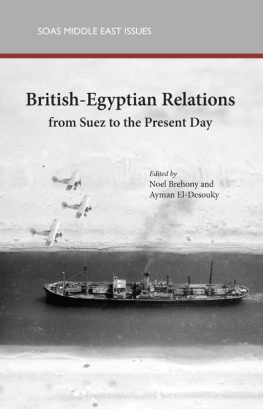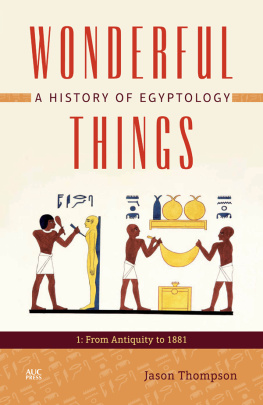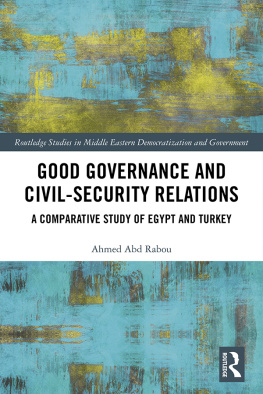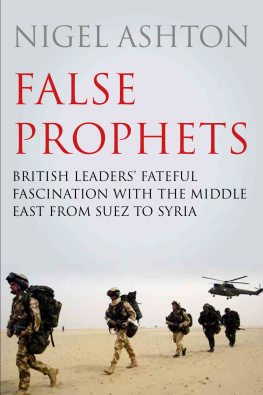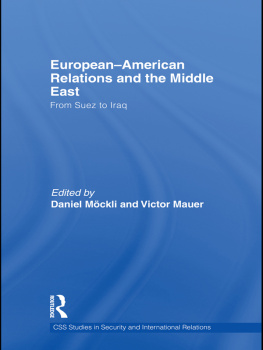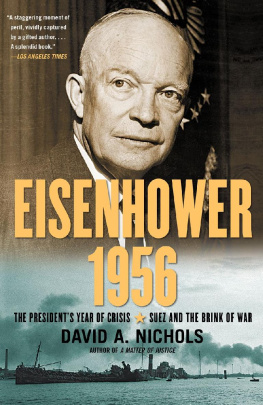Preface
The fiftieth anniversary of the Suez Crisis provided an opportunity to assess the subsequent evolution of the BritishEgyptian relationship, which was one of the most intense of the entire colonial era. Although there were no British colonial settlers in the fashion of French settlers in North Africa, the duration of the British presence, combined with its depth and breadth, meant that the political, economic and social systems of the two interacted extensively. Not surprising, then, was the emotion and hostility brought by both sides to the cataclysmic termination of British influence at Suez. But what seems puzzling is how quickly the bitterness passed and how effective both sides have been at building a new relationship that draws upon the positive legacies of the colonial encounter. On more considered reflection this is hardly surprising, for once the unequal relationship that was the cause of the conflict was equalised, it became possible for both sides to capitalise effectively on the wide-ranging relationships that had been built in the previous era.
This book, based virtually entirely on a conference convened in London in November 2006 by the British Egyptian Society and the London Middle East Institute at the School of Oriental and African Studies, illustrates how the bilateral relationship has flourished over the past half-century, without avoiding some of the persisting difficulties it has confronted. While many of the chapters deal directly with examples of the relationship between the two countries, whether in the area of economics, politics or culture, others illustrate the relationship and its effects indirectly by assessing particular phenomena in one or the other country, especially in Egypt. Occurences and developments in Egyptian economy and polity, for example, have the potential to impact on relations with the United Kingdom, so it makes sense to evaluate such developments separately, as several chapters do.
The approach has been to consider elements of the countries political and economic relations first, then to take up various aspects of their cultural relations. In both areas the range of interactions, as reflected in the diversity of subject matter covered in this book, is remarkable. As regards politics and economics, for example, some idea of the extensiveness of diplomatic cooperation between the two countries is conveyed by an insightful investigation of collaboration on the sensitive issue of weapons of mass destruction within the Middle East region. An assessment of UK support for democracy promotion in Egypt reveals how the two countries deal with an issue that has the potential to damage the relationship at either or both government and popular levels. As regards cultural relations, the range of topics suggests just how intensive colonial and post-colonial encounters have been. Whether in the area of literature, education, film, broadcasting or cultural heritage preservation, contributors to the volume have found ample evidence of mutual impact.
The contributors to this volume are prominent policy makers, officials, academics, businessmen, journalists, archaeologists and producers of popular culture. Precisely because they are drawn from such different professional backgrounds and hence examine topics from varied perspectives the volume as a whole is able to reflect the enormous diversity of the bilateral national relationship and its penetration into everyday lives. This, in sum, is not just an analytical work, but a book that reflects the first-hand engagement of many of its authors in the subjects under consideration. As such, it not only fills the gap in scholarly literature on BritishEgyptian relations, but it does so with a strong sense of personal commitment and knowledge on the part of those who have contributed to it.
The London Middle East Institute, supported by the British Egyptian Society and assisted by Saqi editorial staff, has produced this book. Opinions expressed in it are those of the individual authors and do not necessarily reflect the views of the Institute or Society.
Robert Springborg
Director, London Middle East Institute,
MBI Al Jaber Chair in Middle East Studies, SOAS
AHMED MAHER EL SAYID
Salutatory Remarks
The relationship between Egypt and the United Kingdom has gone through different phases in modern times. Some have been related to manifestations of a naturally tense relationship between colonialists and colonised. Others resulted from the determination of a new regime to reform a deteriorating internal situation through a revolutionary process. This took place against the background of a world torn between the ideals of the United Nations Organisation based on the right to freedom and self-determination, and cooperation among nations on the basis of equality and mutual respect; and the memories of a past domination, which had not yet faded. Old empires found it difficult to change their ways and relinquish their influence. Consequently they saw in the defiance of a new young leadership, led by an unknown colonel, an unacceptable challenge that could alter the balance of the new world order created by the emergence of the Soviet Union, once an ally against the Axis, now a powerful adversary. Moscow pursued a strategy based on ideology, which held some attraction for the poor and weak. In challenging established American power it went beyond ideological competition and sowed the seeds of a new war cold and then hot. In this context, any country which took a position that had the potential to alter the new and fragile balance, where geographic as well as ideological frontiers were challenged, would constitute a danger which had to be nipped in the bud. In my opinion, this is the background against which the events of 1956 took place. It was a war between a past which did not want to fade away or pay the price of adapting to the new world, and a future which was trying to emerge. This confrontation was pregnant with hopes and fears, resentments and worries, dreams and nightmares. In this war, the past was defeated an outcome which would change the world and herald a new era. Soon the winds of change would blow all over the Middle East, Africa and beyond. The future appeared, beyond the clouds of disappointments to come, with the growing brightness of a rising sun. Of course, problems remained and there were ups and downs, but there was a capacity to heal.
Having presented these general observations and considerations I would like to make two points. First of all, I would like to pay tribute to the country that was on the wrong side of history in the battle of Suez, and yet felt able to host the 50 years since Suez conference. It was this sense of fairness that made the event possible. During the conference, harsh judgements were passed and mostly justifiably so on the actions and reactions of the British government. They were received with the characteristic response of a people who can face criticism and adversity with magnanimity and a solid respect for truth. This may have been made easier and this is my second observation by the fact that, since that sad and dramatic episode, relations between Egypt and the United Kingdom have significantly improved. There are still differences, sometimes wide and deep, concerning important matters such as the invasion of Iraq four years ago. Egypt opposed this, not out of any sympathy for the regime which had both harmed Arab solidarity and added to the problems faced by an Arab world trying to build a highway to progress, but from the point of view of international law as well as from a correct and accurate assessment of the negative repercussions of such an invasion. Despite these differences the general trend of the relationship has been positive and beneficial to both sides. Economic relations have improved significantly, both bilaterally and in the context of the Euro-Med connection. Trade has increased to the benefit of both countries, and British investments seem to be on the right path, although they could and should do better. Political consultations are continuous and the two countries have been able to create a good atmosphere of mutual understanding by expanding the scope of agreements and allowing frank and open, though sometimes vigorous, discussion of points of disagreement. These are the characteristics of a healthy and sound relationship which looks to the future with optimism and is based on mutual and hopefully equal benefits. Details of the relationship will be given by other eminent contributors to this book. They reach the same conclusion; that while we are entitled to be pleased with what has been achieved, more progress must and should be made through constant dialogue and consultation. Beyond bilateral interactions, I believe that our relationship, based on mutual knowledge of each other through a long and sometimes tumultuous past can help bridge the gap between East and West. That gap unfortunately has widened over the last few years, for which both parties have at times been to blame. It poses serious threats to the stability, progress and prosperity of both East and West. The world now a big village cannot afford a clash of civilisations which could harm the future of humanity, and which is certainly avoidable if we all show the same good will towards working and living together as is displayed in this book.


